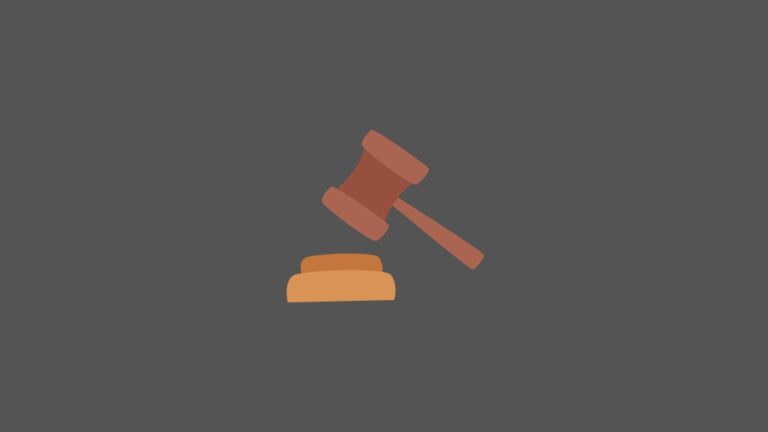Can a Landlord Limit the Number of Occupants in BC?
The number of individuals residing in a rental unit is called occupancy. It is an essential consideration for landlords and tenants because it influences living conditions, rental rates, and the total lease arrangement. Yet, whether a landlord in British Columbia can limit the number of occupants emerges. The answer is complex because it depends on several criteria, including state, municipal, and federal housing rules and the individual lease agreement between the landlord and renter.
In this post, we will look at the rules and regulations that landlords in British Columbia must follow when limiting the number of residents in a rental unit.
We will also review the exceptions to these rules, the penalties for breaking the law, and the limitations on the number of inhabitants that can be included in the lease agreement.
In British Columbia, Can a landlord limit the number of tenants?
Due to safety concerns, increased wear and tear on the property, and potential liability issues, landlords frequently desire to limit the number of inhabitants in their rental apartments. Landlords in British Columbia can restrict the number of additional occupants or roommates in the lease agreement as long as these restrictions are not discriminatory.
Yet, landlords are not permitted by law to limit the number of guests welcomed to the tenant’s residence. The lease agreement may stipulate the total number of days or a specific number of consecutive days that guests may legally reside in the unit before being considered tenants.
While landlords may limit the number of residents in their rental property, they must adhere to state, local, and federal housing rules. Landlords are required by the Fair Housing Act to allow at least two people per bedroom unless a more significant number is justified. It is critical to grasp the legislation and constraints governing occupancy limitations to prevent legal ramifications.
What are some of the exceptions?

While landlords are permitted to limit the number of residents in their rental units, there are some exceptions that must be taken into account. Discrimination is never tolerated, and landlords must guarantee that their policies do not discriminate against any protected groups based on race, gender, religion, or handicap. Furthermore, landlords must respect all tenants’ human rights and may not impose occupancy limits that violate their fundamental rights, such as the right to privacy, family life, or peaceful enjoyment of their house.
It is critical to realize that breaching these exceptions might result in legal implications such as fines or legal action against the landlord. To prevent these repercussions, landlords should ensure that their occupancy policies follow the law and ethical standards. They should get legal counsel if unsure about any part of their occupancy restrictions. Landlords following these standards can ensure their renters have a safe, fair, and comfortable living environment.
What are the ramifications of breaking the law?
In British Columbia, landlords who violate occupancy restrictions face substantial legal implications. Noncompliance with the law can result in fines or other financial consequences. For example, suppose a landlord is found to have violated the Fair Housing Act by placing unjustifiable occupancy limitations. In that case, they may be obliged to pay a fee or face other legal consequences.
In more severe circumstances, landlords who breach occupancy laws may face legal action. This could involve civil litigation in which tenants seek monetary compensation for damages caused by the violation and criminal charges in which landlords face incarceration or other harsh consequences. It’s also important to recognize that breaking the law can have major reputational ramifications for landlords, affecting their ability to attract new tenants.
Landlords must strictly adhere to all occupancy laws and regulations to prevent these potential legal and reputational implications. When in doubt regarding any part of occupancy restrictions, it is strongly advised to seek legal counsel.
What are the rules regarding the number of occupants?

To avoid breaking the law, landlords in British Columbia must follow several occupancy regulations. The Fair Housing Act, for example, requires landlords to allow at least two people a bedroom unless there is a compelling reason to do otherwise. This law assures landlords do not limit the number of persons living in a rental unit and do not discriminate against tenants.
Apart from the Fair Housing Act, landlords in British Columbia must follow state, local, and federal rules limiting occupancy limits. These rules often specify the maximum number of renters permitted per rental property based on unit size and location characteristics.
Landlords can also put occupancy restrictions in the written lease agreement, such as the number of additional residents or housemates permitted. These limits, however, must still comply with all applicable rules and regulations, and they may not discriminate against any tenant based on race, gender, or any other protected characteristic.
Landlords can avoid breaking any laws and maintain a safe and comfortable living environment for their tenants by complying to these occupancy regulations.
What are the restrictions’ exceptions?
Although British Columbia landlords must follow several occupancy limitations, specific reasonable reasons may warrant an exception. If the rental unit is a large house with multiple bedrooms, allowing more than two individuals per bedroom may be appropriate. Landlords can justify greater occupancy by establishing that it is necessary and appropriate for the property.
Another cause for an exception could be medical. For example, suppose a tenant requires the assistance of a live-in caretaker or a family member. In that case, the landlord may need to make exceptions to the occupancy limitations to guarantee that the tenant’s needs are met.
It is critical to understand that any exceptions to the occupancy restrictions must be reasonable and justifiable. By introducing arbitrary exclusions, landlords cannot discriminate against any tenant or breach human rights. They must also verify that any exceptions do not jeopardize the safety and well-being of the other tenants.
Landlords may make informed judgments and provide their renters the greatest possible living environment by recognising the exceptions to occupancy regulations.
What are the ramifications of breaking the rules?
Landlords who break occupancy rules in British Columbia may face severe penalties. Sanctions, such as fines and legal action, can be enforced. Landlords may even be obligated to reimburse their renters for any damages or inconvenience caused by the infraction in specific situations.
The severity of the infraction will determine the number of penalties issued. For example, if a landlord greatly exceeds the permissible occupancy limit, the penalty may be more than if the restriction was only marginally exceeded. Furthermore, the sanctions may be harsher if the breach is determined to be discriminatory or a violation of human rights.
Landlords must understand the occupancy restrictions in British Columbia and verify that they are by them. This not only protects them from penalties or legal action, but it also contributes to the maintenance of a safe and healthy living environment for all residents. Landlords can prevent avoidable hassles and create a great renting experience for their tenants by proactively complying with the regulations.
Also Check: What Is the Difference Between a Tenant and an Occupant?
Conclusion
Finally, while landlords can limit the number of residents in a rental property, they must do it by state, local, and federal housing rules. The Fair Housing Act mandates landlords to allow at least two people per bedroom unless there are compelling grounds to allow more. Discrimination is not tolerated, and human rights must be upheld at all times.
Violations of occupancy limitations can result in harsh penalties and legal action. Landlords in British Columbia must be aware of occupancy regulations and take proactive steps to comply with them to avoid unnecessary problems and provide a safe and healthy living environment for all renters.
Understanding the requirements allows landlords to provide a great rental experience for their tenants while being in line with the law. Finally, the landlord and the tenant gain from this, resulting in a harmonious and mutually beneficial partnership. Learn more about starting a tenancy in the province of British Columbia here.






